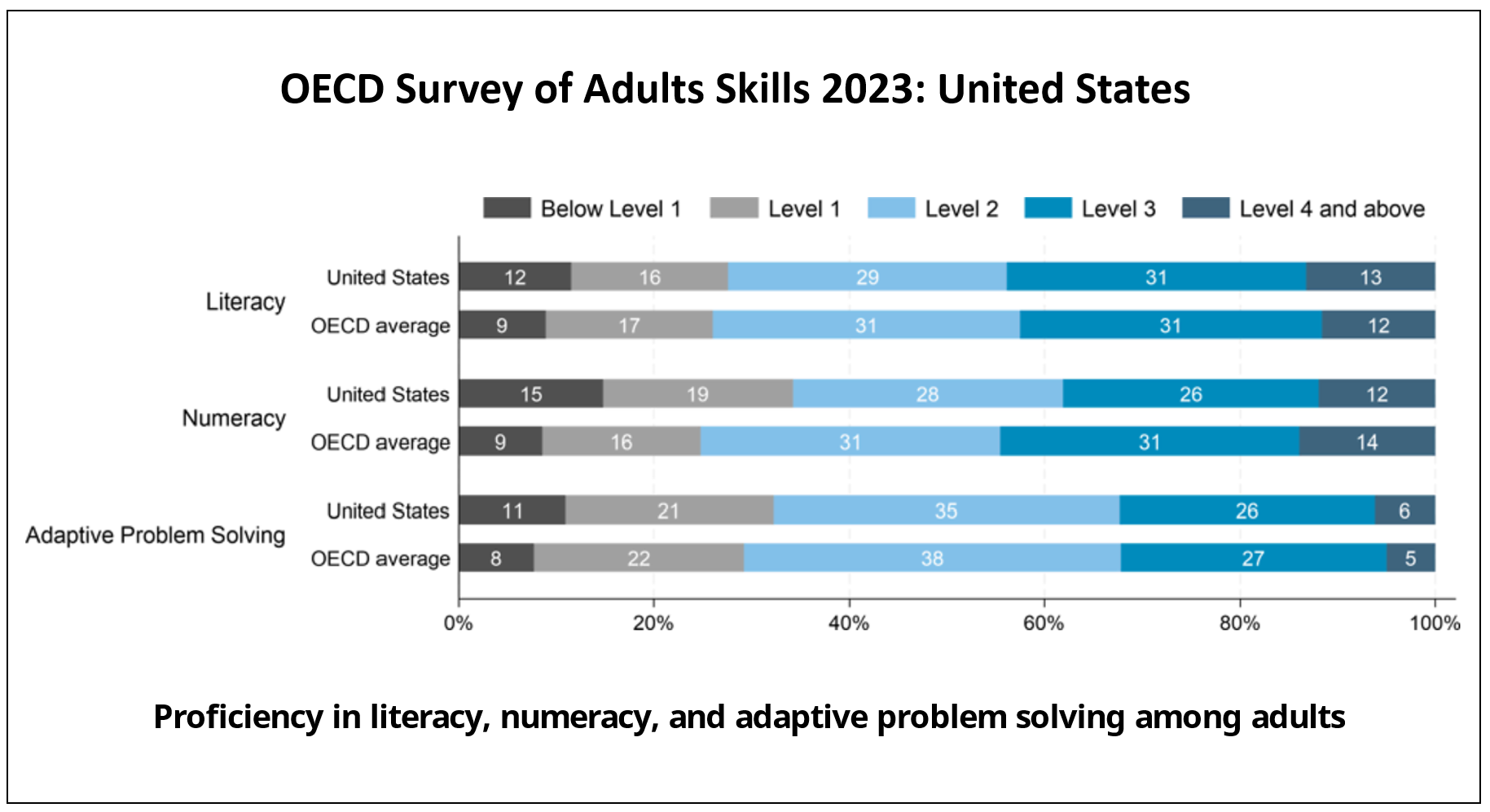
Adult literacy is dropping in the rich nations of the world. An international study shows that about a third of American adults 16 to 65 have reading, math, and reasoning skills no higher than a third-grade level.
Meanwhile, machines expertly assume tasks of writing, math, and problem-solving. Literacy especially concerns writers, because writers need readers, but everyone should care that so many people are thinking for themselves so much less.
Twice over a decade, the 34-nation Organization for Economic Development and Cooperation tested 160,000 adults. The new data shows a rapid decline in literacy in many countries at once, but especially in the U.S. The least educated group grew the most, but the smaller, smartest group got a bit larger, too.
In the U.S., 28 percent of adults (up from 18 percent) could read only at the most basic level, equivalent to third grade or less—just simple sentences and lists. Thirty-two percent of adults were unable to problem-solve above the level of a nine-year-old. They struggled with problems with more than a single step or variable. Math, the same. Slightly more than a third were limited to simple arithmetic with money. Fifteen percent couldn’t even do that, but could only add and subtract small numbers.
This third of Americans also lag behind the rest with poor health, lack of community engagement, and deep distrust of society and institutions. Meanwhile, data shows, the top 10 percent get smarter, more engaged, and more successful.
I don’t know the causes. We can’t blame lazy or uneducated kids. The data shows the problem is worse among older groups. We can’t blame immigration, either. Immigrants often are better at math than the native-born residents of wealthy countries.
Whatever the causes, I worry about the effect on the culture.
A democracy needs citizens who can read and reason, but today you can get by day-to-day with the help of computers. You don’t need to be able to count your change to tap a card. Your phone can answer questions, show videos, and take dictation (91 percent of Americans have a smart phone). Email applications summarize messages and write responses.
Does this threaten writers? Sophisticated, humanistic writing elevates language into an art form, enchanting readers with its beauty, depth, and universal appeal—a testament to the transformative power of words. (The last sentence was written by Google’s AI.)
I don’t expect to lose work to AI—it’s not good enough, yet—but I do fear the loss of a lively ecosystem of ideas that spans society. (And I mean ideas too big to fit a TikTok video or Instagram reel.) I don’t want to be prisoner of an educated elite talking only to itself, cleaved from major segments of the population and lacking mutual comprehension with them.
We have not fully grappled with the implications of a largely illiterate future society that is tended to by brilliant machines and a small cadre of intellectuals.
If you enjoy my newsletter, please share it.